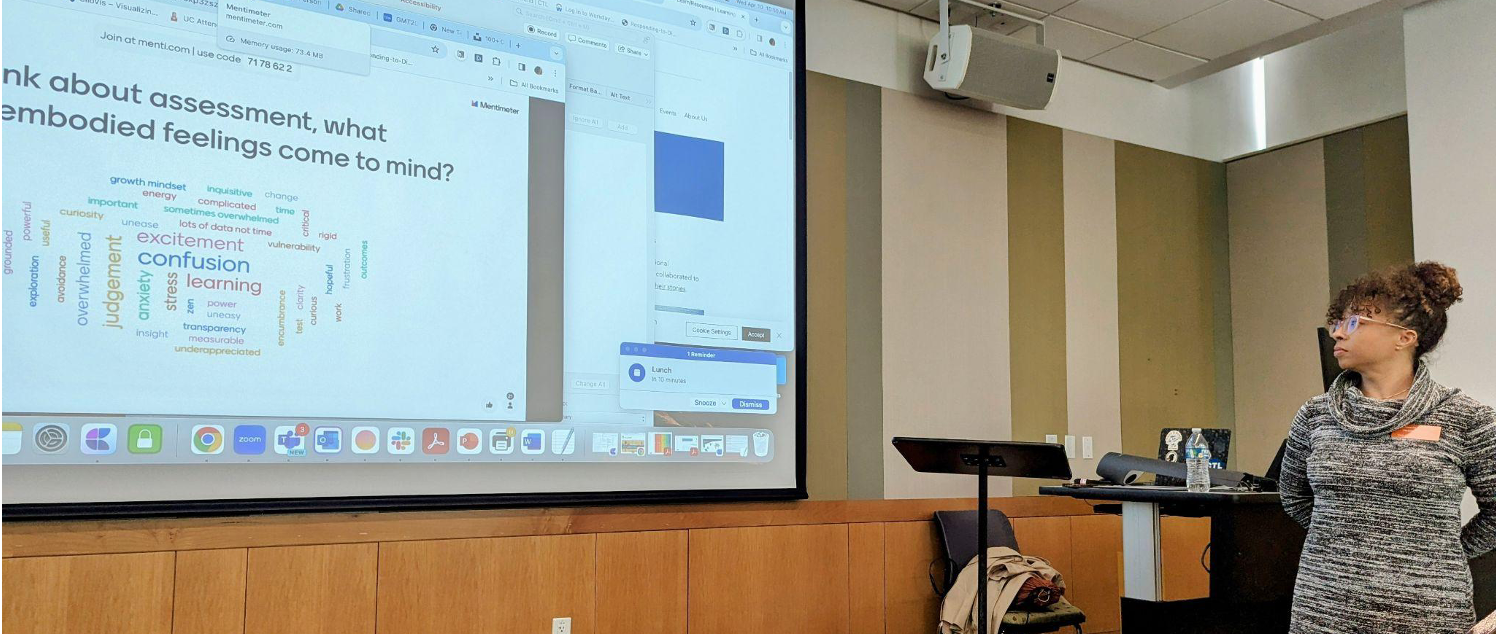
Inaugural UT Assessment Symposium
University staff and faculty from across campus met on April 10th for the inaugural UT Assessment Symposium, an event chock-full of learning and workshopping on how to wield the power of data and assessment to drive positive change. From analyzing survey data to using AI in assessment, the symposium opened up a space to consider what constitutes data, how we collect it, and ways to leverage assessment to shift the university’s data culture and improve our practices and outcomes across university ecosystems: from the single course, to programs, to whole units.
As one of the symposium’s 20 presenters, the CTL’s Assistant Director for Assessment and Experiential Learning, Dr. Heather Wright, led a workshop titled Data Stories as a Foundation for Authentic Assessment, in which participants were able to learn and think about human-centered data collection strategies that acknowledge and center the roles that trust, individual perspectives, power imbalances, and affect and embodiment play in assessment. Heather draws on data feminism, evidence-based storytelling, narrative research, and adrienne maree brown’s emergent strategy to develop “data stories”: an assessment methodology of open-ended conversations and interviews that prioritize the expertise, experience, and agency of the interviewees.
Participants had the chance to engage in conversation with each other and share (data) stories about projects that they thought were particularly impactful or of which they were especially proud. Modeling the type of authentic assessment Heather is developing within the CTL, these conversations shored up a sense of trust, vulnerability, and community.
Participants were also asked to describe the emotions or embodied feelings that arise when thinking about assessment, while their responses auto-populated a growing word-cloud that comprised feelings such as “judgment,” “hope,” and “learning,” among a myriad others. The wide range of responses encapsulated by the word-cloud revealed the common narratives we build around assessment as a concept, and the affective dimension of assessment which is often pushed aside by an overarching focus on objective, empirical, or standardized processes and metrics.

Heather’s workshop gave us a moment to pause and reconsider data collection and assessment from a different vantage point, one which privileges the individual and the particularity of their story, and which recognizes the hidden data that may be unveiled by sincere interest in seemingly small moments.
Author Bio: Michal Calo is a PhD student in the English Department, where she researches 20th century Jewish-American literature. As the GRA for the Experiential Learning Initiative, Michal supports the development of the Scholarship of Teaching and Learning at UT, and works on programming to promote evidence-based instructional practice across campus.

